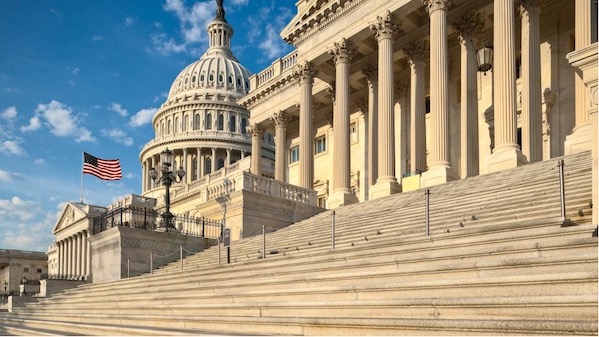Lawmakers look to crack down on Big Pharma tax breaks
June 3, 2023
Source: drugdu
 443
443

Drug pricing crackdowns aren’t the only way lawmakers are looking to reign in pharma’s business practices. With scrutiny of the industry intensifying on Capitol Hill, a Senate committee is now shining a spotlight on how Big Pharma is paying taxes, too.
Earlier this month, Senate Finance Committee Chair Ron Wyden, D-Ore., released a memo revealing the latest findings of an ongoing investigation into how the industry has used a Trump-era law to reap massive decreases in tax rates.
“Big Pharma gets us coming and going — they charge Americans sky-high prices and they pay absolute rock-bottom taxes,” Wyden said in a statement.
According to Wyden, the industry has been leveraging a 2017 law that triggered a 40% reduction in the industry’s tax rate since it was enacted. All told, Wyden’s investigation found that in 2019 and 2020, the industry paid an effective tax rate of 11.6%, down from 19.6% on average from 2014 to 2016.
Wyden also asserted that “Big Pharma reports 75% of its profits overseas, which allows these hugely profitable companies to pay taxes lower than many middle-class Americans.”
Although the pharma industry isn’t alone in taking advantage of the changes, Wyden’s report argued that “compared to other multinationals, Big Pharma’s profit shifting is extreme” and a “massive giveaway.”
The memo also pointed to specific companies, and noted, for example, that nearly all of the more than $37 billion Merck & Co. earned from Keytruda from 2019 through 2022 was taxed as offshore income.
Wyden said that Democrats now intend to “fix” the international tax code and the 2017 law which allows “most profits that a U.S. parent company earns from its foreign subsidiaries” to avoid “U.S. tax under certain conditions,” according to the Center on Budget and Policy Priorities.
Mounting scrutiny
The assertions paint the image of an industry that charges whatever it wants for drugs while avoiding its share of taxes — and that view is reflected in the multiple ways lawmakers and bureaucrats have been cracking down on the industry.
Last year, the IRS took aim at Amgen for its tax payments, saying it owes an additional $7.1 billion dollars in taxes and penalties for the 2013-2015 period related to its entities in Puerto Rico. Although Amgen said that the tax adjustments and penalties were “without merit,” it’s now being sued by investors who allege that the company concealed its tax bill and, as a result, artificially inflated its stock price.
In addition to tax scrutiny, the industry is also battling ongoing efforts to lower drug prices.
Walz signed the bill into law on May 24.
Earlier this month, PhRMA released a statement urging Minnesota Gov. Tim Walz to reject legislation creating a new prescription drug price-setting board for generics, saying that it missed an opportunity to crack down on insurance companies, pharmacy benefit managers and their “unchecked ability to siphon huge profits out of the health care system.”
Despite the common defense that these measures could hamper innovation, multiple studies have called this idea into question. A recent report in the medical journal BMJ found that drug prices are, in fact, “not justified” by R&D investments. Another report published last year in JAMA came to the same conclusion and showed that there was no association between what companies spent on R&D and what they charged for new medicines for 60 new drugs approved by the FDA from 2009 to 2018.
And while the Inflation Reduction Act — which President Biden signed into law last August — aims to discourage companies from increasing drug prices faster than inflation, companies may be able to get around this by simply increasing their launch prices. In fact, an analysis published in the journal JAMA Network showed that from 2008 to 2021, “launch prices for new drugs increased exponentially by 20% per year.”
However, some lawmakers are moving beyond the IRA and targeting drug pricing more directly.
The Cutting Medicare Prescription Drug Prices in Half Act, introduced by Sens. Bernie Sanders, I-Vt., and Amy Klobuchar, D-Minn., would require Medicare to pay no more for prescription drugs than the Department of Veterans Affairs. In particular, the law would require pharmaceutical manufacturers to make medicines available to Medicare at prices that do not exceed the prices either the VA or the General Services Administration Schedule pay — whichever price is lower.
The senators argued that if the legislation was signed into law, Medicare would save an estimated $835 billion over the next decade.
In addition to more closely regulating pharma’s financial practices, lawmakers are also floating ideas to more tightly regulate other players in America’s drug pricing system. The Senate Health, Education, Labor and Pensions (HELP) Committee, is now discussing measures that would increase oversight on PBMs and health insurance companies.
Reference:
https://www.pharmavoice.com/news/pharma-tax-congress-wyden/651550/
Read more on
- Eli Lilly wins another victory! Regcizosumab submits its marketing application in China March 5, 2026
- Henlius’s potential best-in-class small molecule drug receives its first clinical trial approval March 5, 2026
- New anti-aging drug approved for clinical trials March 5, 2026
- First in the world and first in China, Yahong Pharmaceutical’s non-invasive treatment for cervical precancerous lesions, Cervita, has been approved March 5, 2026
- Its investee company’s PA3-17 injection has received clinical approval for a new indication, expanding the applicable population to children and adolescents March 5, 2026
your submission has already been received.
OK
Subscribe
Please enter a valid Email address!
Submit
The most relevant industry news & insight will be sent to you every two weeks.



